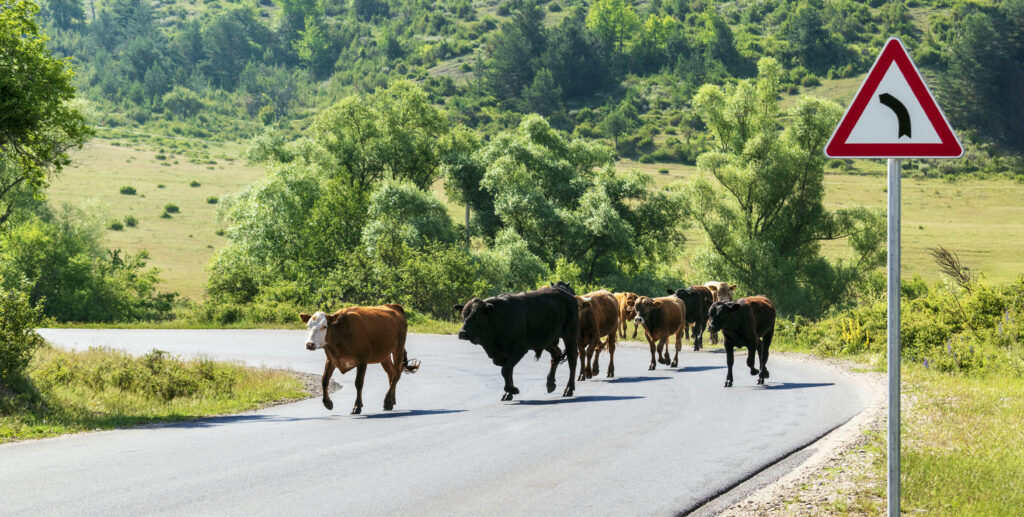Ag Law & You: Liability for Loose Livestock

Compiled by Caleb Currie, Ag Law Pathway Intern
“The cows are out.”
That’s a phrase no farmer wants to hear, as any situation involving escaped livestock can be bad for all involved — from the farmer to law enforcement to those who live or are traveling nearby.
For the farmer, loose livestock can present a variety of problems. This includes being potentially liable for damage livestock may cause while trespassing. Loose livestock can also be subject to injury or total loss. Farmers may even face criminal liability for failing to contain their livestock.
Alabama law recognizes a range of mental states that in the civil context can result in liability. In the criminal context, these can result in culpability. Generally, the mental states range from negligent to willing or knowing. Negligent is the lowest standard; willing is the highest.
The Alabama Supreme Court has held that willfulness requires knowledge and consciousness that an injury is likely to result from the action — or lack of action.
In the context of loose livestock, the court has ruled that in addition to knowing or willing the livestock to be on the road, the owner must have actually put the animal on the road.
Alabama is a “fence-in” state. This means livestock owners are obligated to keep livestock fenced in on their owned or leased property. Alabama has codified this requirement with Ala. Code §3-5-3. Additionally, owners of trespassing livestock running at large are specifically liable for damage caused to crops, trees, shrubs and flowers.
However, Alabama law also protects farmers. Livestock owners’ liability is limited when the livestock causes a collision on a road. To recover against the owner of livestock, an individual must prove the owner knowingly or willfully placed livestock on the road where the collision occurred.
Following the precedent laid out in 2018 through Brewer v. Atkinson, 262 So.3d 663, a farmer is protected from liability for livestock on the road unless it is proven the farmer knowingly or willfully placed the livestock on the road.
Ala. Code § 3-5-2 states it is unlawful for the owner of livestock to “knowingly, voluntarily, negligently or willfully” permit livestock to run at large or loose in the state, either upon the premise of another or public lands, highways, roads or streets. A livestock owner who knowingly or willfully permits this to happen could be guilty of a misdemeanor.
While Ala. Code § 3-5-2 and § 3-5-3 are statewide in application, municipalities may enact their own criminal ordinances within their jurisdiction and generally are free to prescribe the necessary mental state to be guilty of a crime.
However, a recent amendment to this Alabama law prohibits a municipality from adopting a mental state different from the state statute.
Despite this robust protection, farmers should continue to exercise the utmost caution when dealing with livestock near roadways. It is in the best interest of the livestock owner to ensure all animals are properly contained and accounted for.
The material presented above is for educational purposes only. The content does not constitute legal advice. If readers require specific advice or services, a lawyer or other professional should be consulted.
